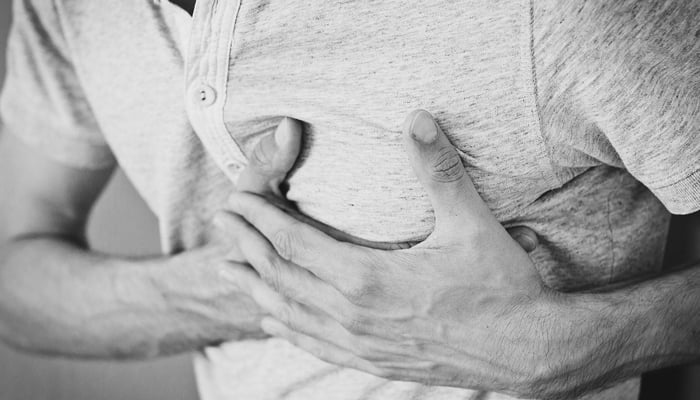CVDs cause more deaths in extreme cold weather conditions
Islamabad: Patients suffering from cardiovascular diseases become more vulnerable to serious and life-threatening complications in the extreme cold weather conditions and to avoid deadly threats, they must follow precautionary measures and visit their physicians frequently for advice during the colder months of the year.
The extreme fall in mercury in Islamabad and Rawalpindi and in upper parts of the mountainous ranges adjoining the twin cities may pose serious threats as studies reveal that the extreme cold also increases the risk of incidences of CVDs. Various studies conducted in the last 10 years around the globe reveal that the highest incidences of CVDs occur during the colder winter months and the phenomenon contributes to greater number of deaths due to the CVDs in winter.
Both the morbidity and the mortality due to the CVDs, 12 in number, including deep venous thrombosis, pulmonary embolism, aortic dissection and rupture, stroke, intracerebral haemorrhage, hypertension, heart failure, angina pectoris, myocardial infarction, sudden cardiac arrest, ventricular arrhythmia and atrial fibrillation have higher rates during the winter than in summer.
Health experts say that the variation in incidences of CVDs is associated with a number of risk factors including weather conditions, physical activity, air pollution, infections, and dietary habits however the risk can be minimized by following precautionary measures specifically in extreme harsh weather conditions.
Potentially important seasonal risk factors like the seasonal variation in the plasma level of fibrinogen, cholesterol, hormones and vasoactive substance including vasopressin (AVP), norepinephrine (NE), epinephrine (E) and angiotensin II, aldosterone and catecholamine which tends to rise in the winter play an important role in the seasonal change of CVDs.
Cold weather increases peripheral vasoconstriction (the narrowing of blood vessels), which may lead to pulmonary oedema as a consequence of left ventricular failure and may also cause abnormal clotting.
It is worth mentioning here that both systolic and diastolic mean blood pressures exhibit a seasonal peak during the winter and trough in the summer among adults, the elderly, and children. The extreme cold affects the blood pressure of both the healthy and hypertensive people. A number of studies on seasonal variation in heart failure (HF) hospitalization carried out in France, Spain, Japan, Scotland, Australia, Brazil, Argentina, Italy, Turkey, Nigeria, Canada, and USA have revealed that admissions of patients increase during the winter season and show decline in summer season.
Health experts in the twin cities of Islamabad and Rawalpindi have repeatedly expressed to ‘The News’ that exposure to extreme cold increases the chances of vasoconstriction and affects the pumping power of the heart muscle in patients with symptomatic congestive heart failure. The exercise capacity among heart patients gets decreased in the colder winter months and it may cause serious complications.
It has been observed around the globe that a greater number of sudden cardiac deaths is reported in winter than in summer while an increase in mortality from acute myocardial infarction (AMI) has also been recorded in the winter months.
Experts suggest that adequate indoor heating, wearing protective clothing and avoiding unaccustomed strenuous exercise in extreme cold weather are some of the precautionary measures that should be followed religiously by patients suffering from CVDs to reduce the risk of dying from the disease. Studies reveal that in both sexes, overall levels of physical activity are significantly higher in summer than in winter and physical inactivity is strongly positively associated with CVDs. Physical activities such as walking, cycling and gardening only protect against acute coronary events if undertaken throughout the year. Experts say that patients suffering from CVDs should involve themselves in some physical activity like walking in daytime when the weather gets a little warmer.
-
 Prince William Warned His Future Reign Will Be Affected By Andrew Scandal
Prince William Warned His Future Reign Will Be Affected By Andrew Scandal -
 Amy Madigan Reflects On Husband Ed Harris' Support After Oscar Nomination
Amy Madigan Reflects On Husband Ed Harris' Support After Oscar Nomination -
 Is Studying Medicine Useless? Elon Musk’s Claim That AI Will Outperform Surgeons Sparks Debate
Is Studying Medicine Useless? Elon Musk’s Claim That AI Will Outperform Surgeons Sparks Debate -
 Margot Robbie Gushes Over 'Wuthering Heights' Director: 'I'd Follow Her Anywhere'
Margot Robbie Gushes Over 'Wuthering Heights' Director: 'I'd Follow Her Anywhere' -
 'The Muppet Show' Star Miss Piggy Gives Fans THIS Advice
'The Muppet Show' Star Miss Piggy Gives Fans THIS Advice -
 Sarah Ferguson Concerned For Princess Eugenie, Beatrice Amid Epstein Scandal
Sarah Ferguson Concerned For Princess Eugenie, Beatrice Amid Epstein Scandal -
 Uber Enters Seven New European Markets In Major Food-delivery Expansion
Uber Enters Seven New European Markets In Major Food-delivery Expansion -
 Hollywood Fights Back Against Super-realistic AI Video Tool
Hollywood Fights Back Against Super-realistic AI Video Tool -
 Pentagon Threatens To Cut Ties With Anthropic Over AI Safeguards Dispute
Pentagon Threatens To Cut Ties With Anthropic Over AI Safeguards Dispute -
 Meghan Markle's Father Shares Fresh Health Update
Meghan Markle's Father Shares Fresh Health Update -
 Samsung Galaxy Unpacked 2026: What To Expect On February 25
Samsung Galaxy Unpacked 2026: What To Expect On February 25 -
 Travis Kelce Takes Hilarious Jab At Taylor Swift In Valentine’s Day Post
Travis Kelce Takes Hilarious Jab At Taylor Swift In Valentine’s Day Post -
 NASA Confirms Arrival Of SpaceX Crew-12 Astronauts At The International Space Station
NASA Confirms Arrival Of SpaceX Crew-12 Astronauts At The International Space Station -
 Can AI Bully Humans? Bot Publicly Criticises Engineer After Code Rejection
Can AI Bully Humans? Bot Publicly Criticises Engineer After Code Rejection -
 Search For Savannah Guthrie’s Abducted Mom Enters Unthinkable Phase
Search For Savannah Guthrie’s Abducted Mom Enters Unthinkable Phase -
 Imagine Dragons Star, Dan Reynolds Recalls 'frustrating' Diagnosis
Imagine Dragons Star, Dan Reynolds Recalls 'frustrating' Diagnosis




